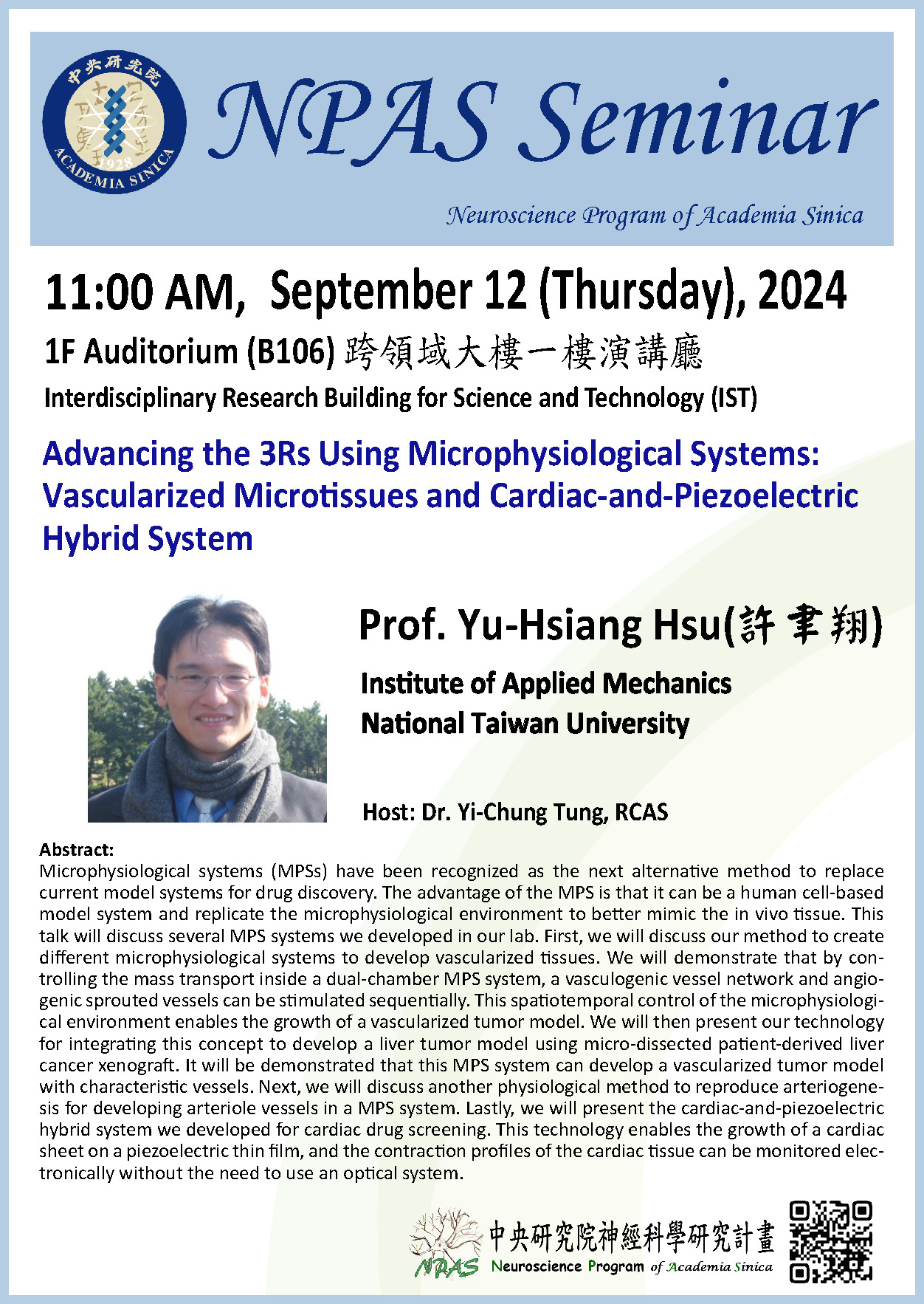- Lectures
- Institute of Biomedical Sciences
- Location
1F Auditorium (B106), IST
- Speaker Name
Prof. Yu-Hsiang Hsu (Inst. of Applied Mechanics, NTU)
- State
Definitive
- Url
Microphysiological systems (MPSs) have been recognized as the next alternative method to replace current model systems for drug discovery. The advantage of the MPS is that it can be a human cell-based model system and replicate the microphysiological environment to better mimic the in vivo tissue. This talk will discuss several MPS systems we developed in our lab. First, we will discuss our method to create different microphysiological systems to develop vascularized tissues. We will demonstrate that by controlling the mass transport inside a dual-chamber MPS system, a vasculogenic vessel network and angiogenic sprouted vessels can be stimulated sequentially. This spatiotemporal control of the microphysiological environment enables the growth of a vascularized tumor model. We will then present our technology for integrating this concept to develop a liver tumor model using micro-dissected patient-derived liver cancer xenograft. It will be demonstrated that this MPS system can develop a vascularized tumor model with characteristic vessels. Next, we will discuss another physiological method to reproduce arteriogenesis for developing arteriole vessels in a MPS system. Lastly, we will present the cardiac-and-piezoelectric hybrid system we developed for cardiac drug screening. This technology enables the growth of a cardiac sheet on a piezoelectric thin film, and the contraction profiles of the cardiac tissue can be monitored electronically without the need to use an optical system.









 Home
Home

